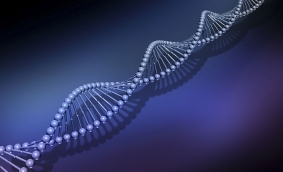
The message in my inbox came from a pretty American woman in her thirties whose profile photo showed soft auburn hair. "My name is Alison," her friendly note began. "I'm contacting you because we share 0.62 per cent DNA on six segments, and we could be distant cousins."
Forget Facebook - my new social network is devoted to people who share traces of my DNA. Since I had my genotype analysed by the California company 23andMe, I have received a stream of approaches from potential distant relatives who want to know more about me. Alison isn't my closest match - 23andMe says it's found a second cousin who shares 1.17 per cent of my DNA and ten shared gene segments, and of my 990 other predicted relatives there are enough undiscovered third and fourth cousins to keep family sulks alive for generations. But Alison - of Russian, Polish, Hungarian and French ancestry, according to her lab results - is particularly keen that I share my full genome with her. And - well, it's not that I'm scared of commitment, Alison; I just wonder if we should take things a little slower.
Welcome to the new era of personal genomics, where, for a few hundred pounds, you can learn more about your genetic profile than you ever imagined. Just spit some saliva into the jar that arrives by DHL and within weeks 23andMe will tell you not only your comparative disease risks and likely medical-drug responses, but will also tell you the geographic origins of your bloodline. "The information is intended for research and educational purposes only, and is not for diagnostic use," my personal online "health overview" warns me. But with statistics indicating my odds on everything from developing Parkinson's to contracting Creutzfeldt-Jakob disease, it's instantly clear that this is one online purchase with the potential to change my life.
Thankfully, my lab results are wonderfully reassuring, with lower-than-average risks for almost every condition that ever worried me (do you really think I'd be telling the internet if there were indications that I was less than a genetic Adonis?). So, if I'm a numbers man, I can stop worrying about multiple sclerosis, brain aneurysms and rheumatoid arthritis, which along with dozens of other serious and less serious conditions I'm below average risk of developing. More statistically significant is my likelihood of developing "restless legs syndrome". Once I've processed the news, I'll let you know if I decide to undergo counselling.
I shouldn't joke - this is information that can unexpectedly and suddenly change your life, and not always for the better. It took me a while to send off that sample, not least because of my concern that any information that's put on to the internet will eventually be used in unforeseen ways that don't necessarily help you. But I figured that I would rather know my odds, and if necessary modify my behaviour should any actionable concerns arise. Increasingly, I think it will become a social norm to take more responsibility for our and our children's genetic risk factors. That's a whole public and legal debate that's still to take place - but as the cost of gene testing falls towards that of a cappuccino, it's inevitable that personal DNA analysis will be an uncontroversial commonplace.
What's impressive about the 23andMe results is the context you're given based on the individual gene markers found in your saliva. You're given a confidence rating for each result based on the number and scale of scientific studies - so I know with near certainty that I lack crucial markers for cystic fibrosis, sickle-cell anaemia and the BRCA cancer mutations. You learn which medical drugs you are more or less likely to respond to, which could be genuinely useful in altering your prescribed dosages. And if you want to dig deeper, your personal results for any disease risk link to further pages of medical discussions about that condition, technical data, chat threads and support group details.
So, thanks Mum (genetic haplogroup T1a1) and Dad (E1b1b) for those DNA segments. But why didn't you tell me that, according to my 23andMe profile, Warren Buffett and Bono are apparently distant relatives?
By David Rowan
David Rowan

David Rowan is GQ's technology columnist and editor of Wired. "What obsesses me is how new technologies change our behaviour - not the devices themselves, but what they mean for us as social creatures, or storytellers, or consumers," he says.
Source: gq-magazine.co.uk






